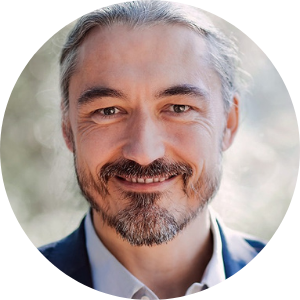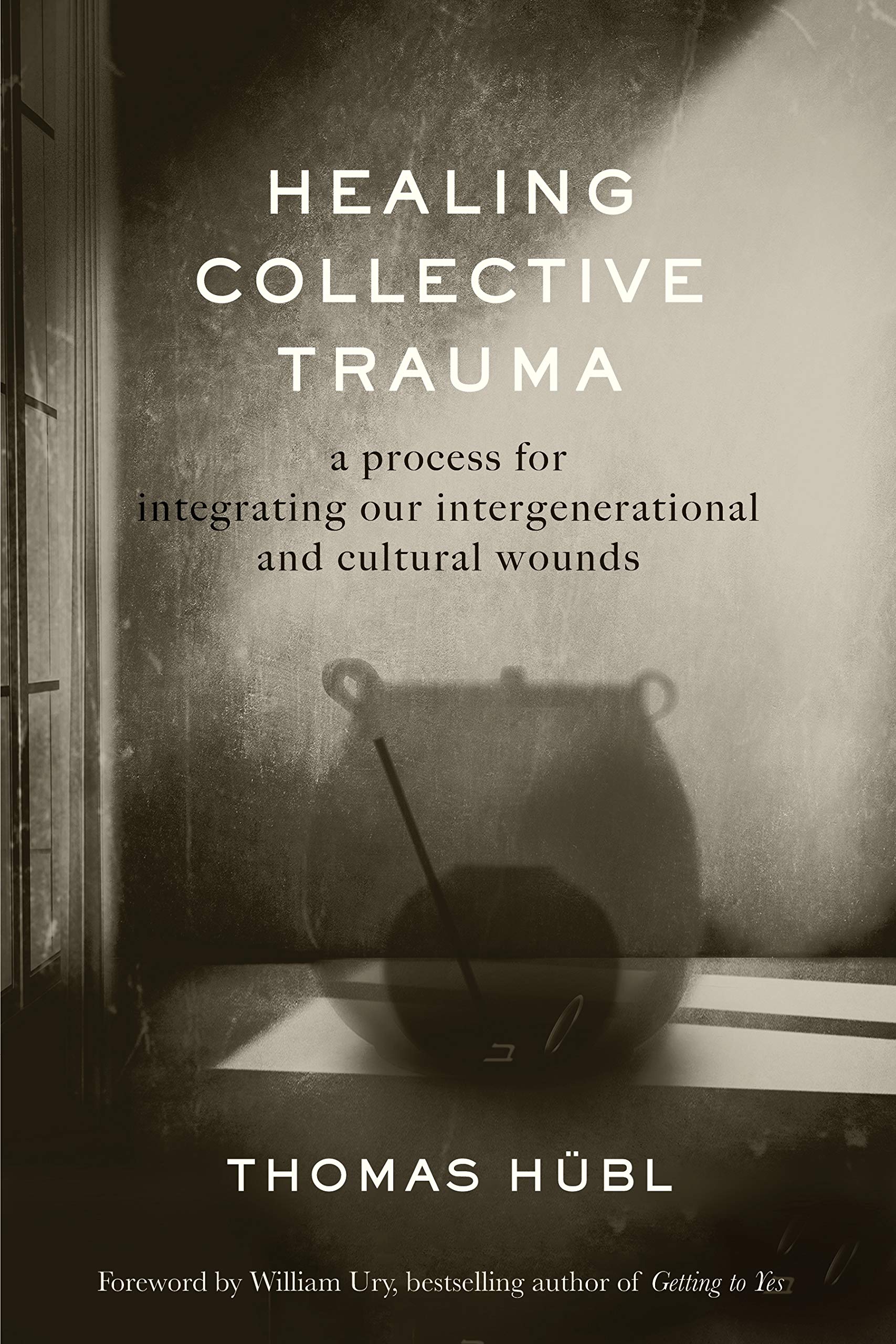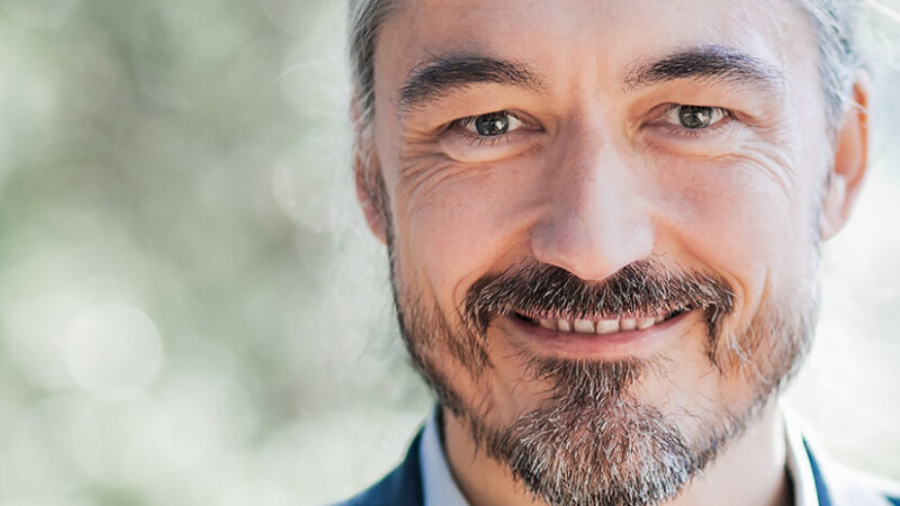Watkins Mind Body Spirit shares a Q&A with spiritual teacher Thomas Hübl following the launch of his latest book, Healing Collective Trauma.
Q: Your work brings together scientific research with the exploration of the inner realms, what you call “inner science,” and also trauma. Can you tell us more about your approach?
A: I’ve come to understand that the systemic effect of trauma that has been with humanity for thousands of years is part of the architecture of separation. Humanity has designed this architecture and has constructed it. And all the mystical traditions are both introspective and scientific, in their own way, as they seek to uncover the nature of reality through contemplative practices. It’s a very precise and skillful understanding of reality from within. Material science does the same thing by observing and contemplating external phenomena that can be measured.
I came to understand that if we want to practice qualities like compassion, love, presence unification, higher state of consciousness, we will always bump against a phenomenon that today we call trauma, which is another word for karma.
Q: When we think of karma, we think of the consequences of our actions. How would you explain this in relation to trauma?
A: People refer to negative karma, but it is not negative, as in “bad”; karma is information that’s being postponed. Every time I postpone information or postpone experience that I cannot process (either unconsciously or consciously) because I’m too overwhelmed, I need to fragment this and postpone it for the future.
Then it’s like taking a loan from the future, because I create a kind of artificial future. I live with this part of my past that I’ve “split off” since I cannot process it now. But I’m actually buying a part of my future with a loan so that I can get through this overwhelming experience. Like every loan, I will ultimately need to pay it back – in this case, to unify life once again.
Q: When we think about karma, as well as trauma, on a larger scale, what are the effects?
A: When there are massive, large-scale karmic events that accumulate as systemic fragmentation, then we suddenly find ourselves in a world where separation becomes the norm. The interconnectedness of life is no longer the norm, the notion that there is one web of life that we’re all part of. Instead, we end up feeling like separate particles in life. If we take the words of the great wisdom teachers seriously, like Buddha or Jesus or Lao Tzu, we see that every serious wisdom teacher spoke about the enlightened state as a unified state, and fragmentation or separation as the norm.
Today we use the word “trauma” because it’s scientifically relevant; it explains the elements of separation, and we’ve been able to develop ways to understand how to integrate and heal. So collective trauma can be used interchangeably with the word separation. As human beings, we are constantly dealing with the side effects of separation.
Q: How are mysticism and collective trauma interrelated?
A: I believe that understanding the nature of collective trauma is a necessity on every mystical or spiritual path. Truly exploring these depths is integral to every spiritual path. Otherwise, the spiritual journey often ends up as a bypass, a path without embodiment. So in this way I’m not using my spiritual practice to go “somewhere else.” If compassion becomes disembodied, it’s not actually compassion, but a disembodied version of it.
We can say, “I love everyone; we are all one.” But this can sound removed at times from a sense of embodiment and grounding. If I say this from an embodied perspective, then I will have to deal with all the things that it means to be a human being. I’ll need to be more awake and conscious. To become an illuminated, realized human being means that the whole history of humanity becomes an integral part of my realization.
And that’s why I think we need both.
Q: What are some of the other skills that you believe are important for one’s spiritual path?
A: We need both a contemplative practice and all the skills that arise from that practice: subtle competencies, relational capacities, deeper presence, and witnessing consciousness.
We need more love, more clarity, more interconnectedness — as an experience, not as a cognitive understanding as in only “I think about interconnectedness.” We need to directly experience interconnectedness.
I believe that transcendence means to include everything we may have a tendency to bypass or to disregard. First we include, and only then can we transcend. We include the karma of our parents, grandparents, and ourselves which, by doing so, throughout our lives, leads to a deeper integration of life. So we actually come into life more, and then we unify our lives more with these various aspects that we include, not exclude.
And I think that’s what it means to be on a spiritual path. That’s also what it means to be on an path of integration and personal development.
So, seen from a mystical perspective, all of this is one. There isn’t a mystical side and then there is psychotherapy, or the mystical side and then there is science. These are all different aspects of the mystical understanding.
Q: In your book, you discuss a vision for the collective trauma integration process that you outline. What does a future look like where many people around the world practice such a process?
A: We just launched a course on healing collective trauma which has 1500 participants enrolled from around the world. This cohort is learning the fundamentals of processing, step by step, the stored emotions, somatic experiences, and other aspects of collective trauma they’ve each experienced. Some of these experiences may be conscious, while many just sit below the level of awareness while manifesting as chronic symptoms such as stress and dysregulated emotions, as well as numbness and dissociation.
While we are beginning to see promising developments in epigenetic research, we could all benefit from more discussions around intergenerational trauma. So not only what we might discover scientifically, but having conversations around what patterns we might see in our own families and in ourselves that have been shared – and might continue to be shared – to subsequent generations.
Listening to one another and sharing these reflections with one another and in small groups can help us bring more awareness to how trauma lives within us all the time. By reflecting these experiences in groups, with others as witnesses and active listeners, we begin to allow what can be blocked energies to release and come to a completion. We can also experience and appreciate the post-traumatic growth that comes with the resources our ancestral lineage has graciously given each of us.
It’s important to remember that individual trauma is a response to an overwhelming situation, the best I could do given the circumstances. And on a collective scale, it’s the best we could do in the circumstances we’ve faced and continue to face.
Watch Thomas explain how he frames and approaches trauma within his teachings:
Find out more:

Thomas Hübl is a teacher, author, and international facilitator whose lifelong work integrates the core insights of the great wisdom traditions and mysticism with the discoveries of science. Since 2004, he has taught and facilitated programs with more than 100,000 people worldwide, including online courses which he began offering in 2008. The origin of his work and more than two decades of study and practice on healing collective trauma is detailed in his book Healing Collective Trauma: A Process for Integrating Our Intergenerational and Cultural Wounds. His non-profit organization, the Pocket Project, educates and trains the public and facilitators on this topic, and his institute, the Academy of Inner Science, has developed a PhD and MA program with collaborating universities.

Bookshelf:
Healing Collective Trauma: A Process for Integrating our Intergenerational and Cultural Wounds by Thomas Hübl, published by Sounds True, RRP £19.99


